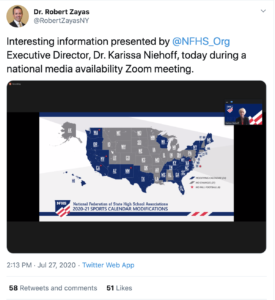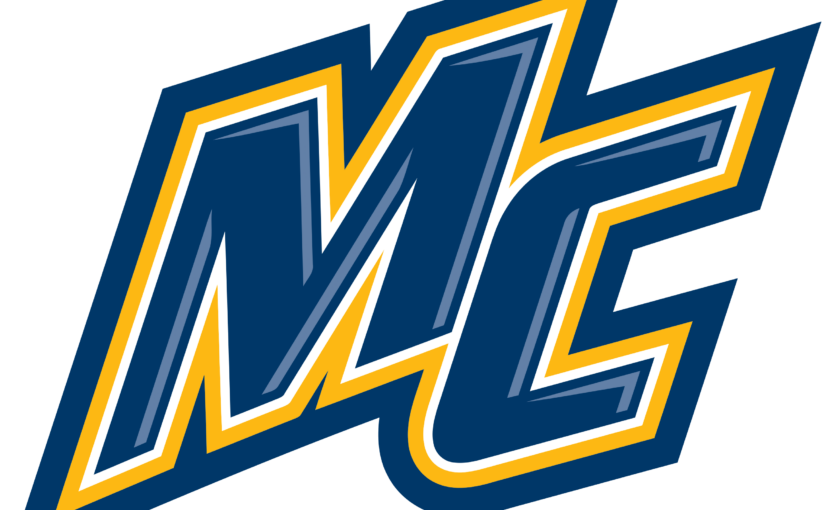How concerned are state associations about the prospect of not being able to play football in the fall given its financial importance and is this a concern for the long-term health of high school sports?
Karissa Niehoff: State associations are very concerned. When we surveyed our states before the end of the calendar school year, we heard from our state associations that just with the loss of winter and spring championships, we were seeing a $100,000 to $150,000 (loss) all the way up to the excess of a $2 million loss to state association revenues. If there are no fall championships, say in football, some (state associations) will be pretty dire straits financially and absolutely having to dip into reserves to fund championships going forward at least for a year. This is not a one-year problem. If there are no fall championships and no fall sports for our schools and districts, there are revenue impacts there that go far beyond this one calendar year. So we are very concerned from a financial perspective, but we’re also concerned from a community perspective. We’re advocating at a federal level for any bill that would support back funding education itself, not just focusing on supporting youth sports. We’re really looking at funding for school districts, out of which comes co-curricular activities for schools.
When you meet with state association leaders, what are your observations on how they’re meeting these challenges: Are you seeing an angst, a tenacity, a commitment – what do you see from them?
Karissa Niehoff: Yes – to all of it. There’s an angst. There’s an anxiety, and it’s not all about finances. We have weekly webinars with our state executive directors and commissioners. Nobody yet has talked about money – nobody. What everyone has talked about repeatedly is how to be creative in getting kids back, to getting collaboration and consensus around being able to bring kids back statewide and what that looks like even within a state that’s different. And how, if it’s different, can we still have kids proceed through a season to potentially a championship? For example, if a baseball team in Iowa has a positive case and they have to quarantine, is that a forfeit? No, it’s just not a game on the schedule. They couldn’t help that. So our state associations are looking at ways to talk with schools, to talk with athletic directors, to talk with coaches and officials, to best educate everybody and bring everybody to the table to say, ‘All right, how can we bring some common sense to this commitment that we have? What might this look like? Where can we bend? What can we bring? What can we do to fill in these gaps?’
» ALSO SEE: Where All 50 States Stand on Football Returning
Our commissioners and executive directors are not saying, ‘I’m out,’ at all. They are not saying, ‘I want to pull the plug.’ They want to go forward, and if it means we wait until January and condense our seasons, we’re going to do it. If it means we flip football to the spring, fall sports to the spring – which Virginia just did – we want to make sure that we support our schools in a way that we can still play.
To get further information and details from the NFHS, head over to its website by clicking here.








